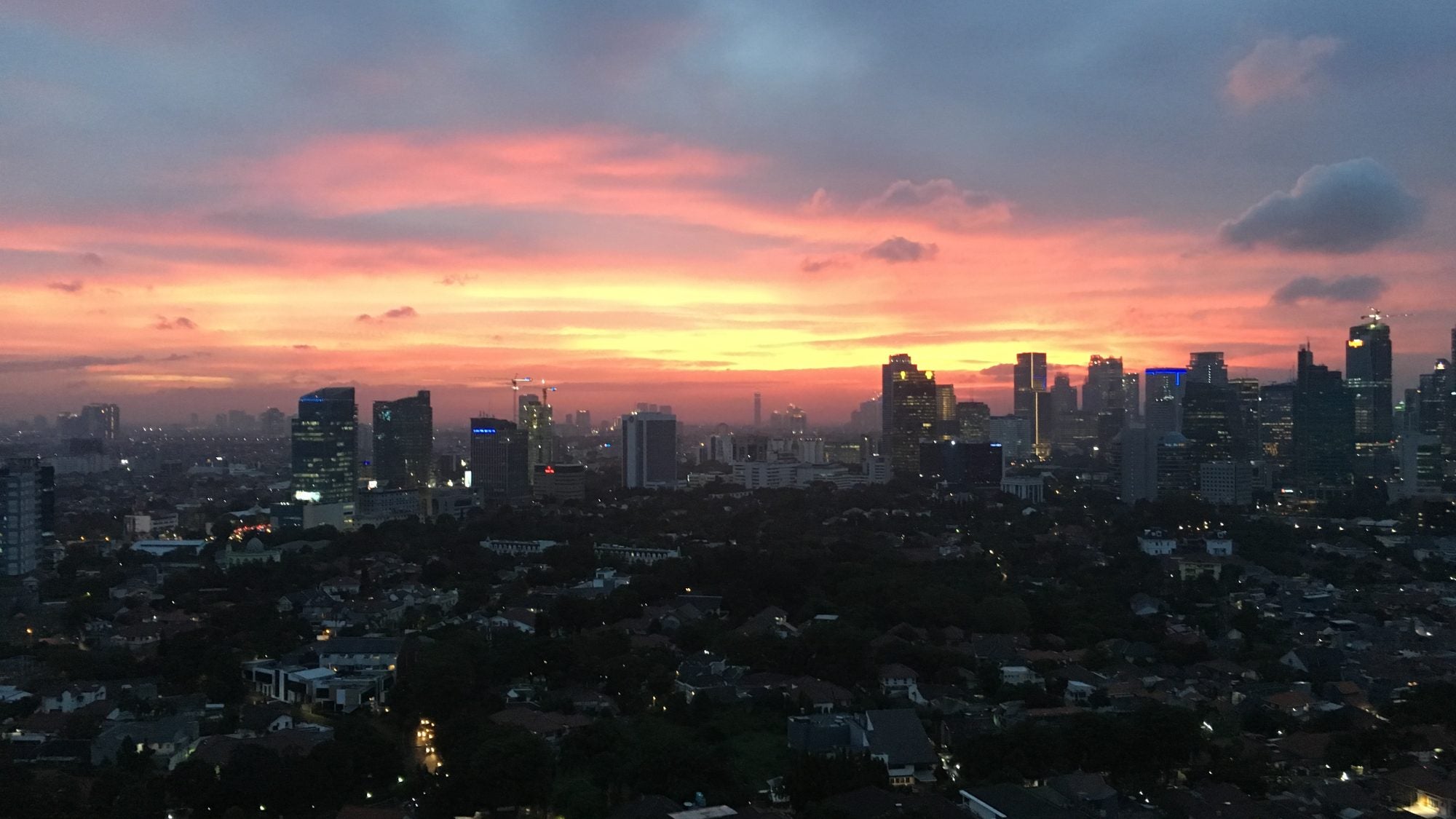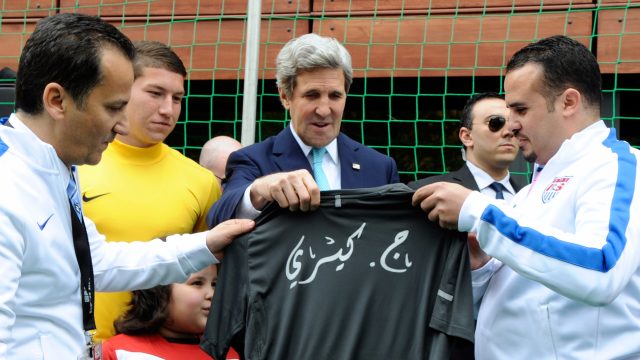
Title: Thinking through the Socio-Political Implications of Indonesia’s Capital Relocation with Dr. Deden Rukmana
The Indonesian government under outgoing President Joko Widodo plans to relocate its capital away from Jakarta, a city that has been riddled with environmental and population challenges in recent years. The new seat of government will be situated on Borneo Island, Nusantara. This ambitious $32-billion project pledged to redistribute wealth and resources across the archipelago and catapult Indonesia. Unpacking the economic and political implications of this move, GJIA sits down with Dr. Deden Rukmana, an expert on urbanization, housing, transportation, and development challenges in Indonesian cities.
GJIA: Your academic writing has extensively covered urbanism in Jakarta, from its socio-economic dualism to suburbanization in recent years. The capital stands out in its immense population size and vulnerability to natural calamities. Can you elaborate on the set of conditions that have pushed the government to relocate its capital city Jakarta to Nusantara in East Kalimantan?
DR: Yes, there are compelling reasons why the government will move the capital from Jakarta. I have been advocating for this relocation since 2006. At that time, the issue was flooding. Jakarta experiences floods annually, which are getting worse year after year. In recent years, the city also had severe air pollution and the issue of traffic congestion.
This has stemmed from rapid urbanization. Many people moved to Jakarta because the city has everything. The issue lies within Indonesia, where there are not enough resources and development is very concentrated in Java. Everything is considered the best there –– hospitals, among other services. Moreover, Jakarta was initially planned by the Dutch government for a population of 500,000. Now, it has 10 million, and with the suburbs considered, it has more than 32 million. The population was way above the plan by the Dutch when they created this city.
The rate of population growth in Jakarta from 1990 to 2000 was the fastest in the country. It is the only mega Indonesian city of more than 10 million people and stands as the primate city, dominating not only in population but also in economic concentration. We need to have more distribution of activities outside a singular concentrated area.
GJIA: The island of Java hosts 57% of the total population of Indonesia and stands as the second-largest metropolitan area in the world. Composed of over 13,000 islands, Indonesia is also home to more than 200 ethnic groups with over 300 spoken languages. The country’s unique diversity informs its governing decisions. What are the implications of shifting the country’s political and economic locus to Nusantara? What are the potential administrative pitfalls you see along the way?
DR: It is not just about the environmental and demographic problems of Jakarta; it’s also about Indonesia as a nation. Since independence in 1945, most of the development occurred in Java Island. The idea behind the current location choice is to make it not Java-centric, but Indonesian-centric. Nusantara is located neither in the west side of Indonesia (i.e. Sumatra) nor in the east side of Indonesia (i.e. Papua), but in Kalimantan — relatively in the middle.
All urban planners are skeptical about building a new city from scratch. We need to determine who is going to move there. Of course, this is a government-led initiative, with plans to relocate approximately 16,000 civil servants from Jakarta. Regarding the size of this project, just like you mentioned, it amounts to billions of dollars. The government needs to guarantee funding to prevent this project from being terminated or paused. I’m doubtful of the government’s ability to secure continuous funding because many factors contribute to the continuity of this project. It is, after all, the largest and most expensive project in Indonesian history.
In the past few months, I have seen a hasty process in this capital relocation effort. They are just trying to get things done before President Joko Widodo, who wanted to establish a launch of this new capital during that Indonesian independence ceremony, steps down. You see, there are time frames in which the President tried to complete the project. And because of this time frame, everything is hasty and rushed, including laws made for the regulation of this new city.
GJIA: President Joko Widodo, in a conference in Singapore last June, touted investment in the new capital Nusantara as a “golden opportunity.” The ambitious plan comes with a $32 billion price tag. In your interview with the New York Times, you pointed out that the capital is “not just being built for Indonesians,” but “being built for the world.” What does this thrust for relocation reveal in terms of Widodo’s administrative and diplomatic ambitions?
DR: I have been following Joko Widodo since he was mayor. He was deft in negotiating the relocation of street vendors to a market in 2005. His approach is not characterized by friction or force, but rather by dialogue and engagement with the public. In this instance, his patience and open-mindedness epitomized the democratic process in Indonesian politics.
With this project, it is different. The law only came to the House of Representatives on December 7, 2021, and was approved on February 15, 2022. This time is the [mere] process of law. There was very little time for a discussion on the most expensive project in Indonesian history. There is not enough public consultation, and there is not enough study to support this. It seems like President Joko Widodo tried to establish his legacy through this capital relocation. Everything must be fast, quick.
Interestingly, President Joko Widodo was skillful with this negotiation and political arrangement, so only one political party rejected the bill. All others approved. But because of the lack of time for thorough consideration, the process is just hasty, and we need to carry out that law. Based on my judgment, it is very unlikely that we will retract the law. We will continue with implementation.
The question is not about whether this capital project will keep going. The answer is yes, the capital will keep going because we already have this law, and the new president will also implement that law. The question is how fast or what approach will be implemented by the new leader? Will it be different from what President Widodo has done so far? Prabowo Subianto’s interviews reveal that he would very much like to continue the legacy of President Joko Widodo.
GJIA: Indonesia’s capital relocation is certainly not an anomaly in modern nation-building. In the last century, countries like Nigeria and Brazil have moved capitals for social, climate, or security concerns, although with varying degrees of success. Egypt is the latest to uproot the seat of its government from Cairo to the city’s outskirts. Despite the glitz surrounding the new capital, humanitarian concerns –flooding, traffic congestion, and overpopulation– continue to plague the Java residents left behind. Where do you see Jakarta’s future? What steps should the government undertake to ensure its citizens’ well-being?
DR: In the long run, the burden on Jakarta could be reduced. The administration projects a 1.9 million population for the new capital by 2045. But that is still 20 years from now. In the short term, there likely would be no change with the overpopulation issue plaguing Jakarta.
In terms of flooding, Jakarta needs to work with surrounding areas to address the challenge effectively. They can stop the conversion of greenland into urbanized areas. Spatial laws mandate that 30 percent of urban areas must be designated as green areas, yet Jakarta still has less than 10%. With more green areas, the city can also have more space for water. The government also needs to have more collaborative efforts among all sectors to reduce the level of air pollution in the city and its outskirts.
. . .
This transcript has been lightly edited for clarity and length.
Interview conducted by Sharon Xie.
Dr. Deden Rukmana is a professor and chairperson of the Department of Community and Regional Planning at Alabama A&M University. With eight years of experience as an urban planner in Indonesia, he centers his research on urbanization, housing, transportation, and development challenges in Indonesian cities, with a particular emphasis on Jakarta. Dr. Rukmana currently sits on the Global Planning Education Association Network (GPEAN) as the secretary from 2022-2024. He is also the editor of The Routledge Handbook of Planning Megacities in the Global South (2020). His scholarly contributions have been widely recognized and cited by many media outlets, including the New York Times, Straits Times (Singapore), Jakarta Post, and Kompas (Indonesia).
Image Credit: Wikimedia Commons
Recommended Articles

Art and music serve as a shared language among all humanity. Yet historically, they have often been easily categorized into different genres or styles with little discourse on the intersection…

Across cultures and countries, food is a shared human experience, and different cuisines are a symbol of diversity. Yet, in our current climate crisis that requires sustainable solutions, we must…

From the Olympics to the FIFA World Cup to the Asian Games, sports competitions have played out on the international stage for hundreds of years and undoubtedly receive sustained international…